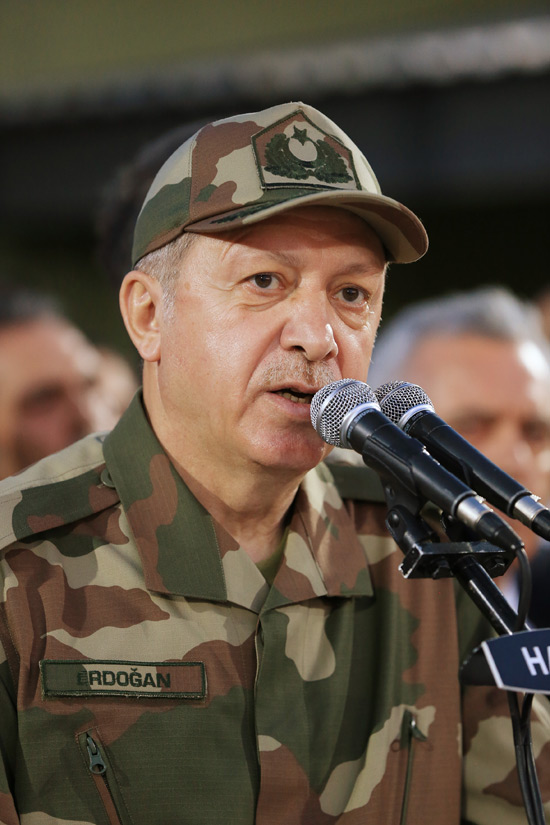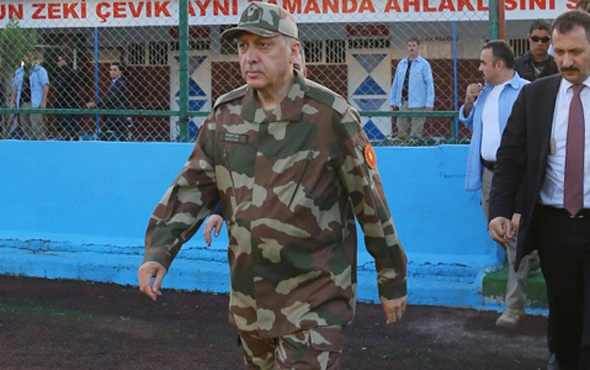Levent Kenez/Stockholm
Turkish President Recep Tayyip Erdogan has assumed the authority to declare a mobilization and a state of war. The authority to declare a mobilization previously belonged to the Cabinet, while the decision to declare war was made by the parliament.
Turkey introduced an executive presidential system in 2018 giving Erdogan sweeping powers and preventing parliament from conducting its oversight of the executive branch.
According to the new regulation published in the Official Gazette under President Erdogan’s signature, the “Mobilization and State of War Regulation” has replaced the former “Mobilization and State of War Decree,” effectively ending the practices in place since 1990. With the new regulation in effect, several older regulations have been annulled, including the 1980 Turkish Armed Forces logistical mobilization preparedness regulation, the 1991 Turkish Armed Forces personnel mobilization regulation and the 2010 Reserve Personnel deferment regulation. References to the repealed decree in existing legislation will now point to the new regulation.
The 52-page document defines the regulation’s purpose as “enabling the swift and effective transition of all state power and resources from a state of peace to a state of mobilization or war.”

Mobilization is defined as the preparation, assembly, arrangement and utilization of all state power and resources, especially military power, to meet wartime needs. This process allows for the partial or complete restriction of citizens’ rights and freedoms by law. The Ministry of Defense describes mobilization as the state during which the country and the nation prepare for war.
Partial mobilization pertains to one or more regions of the country, requiring only a portion of the state’s power and resources. The new regulation underscores the president’s pivotal role in these preparations and activities during mobilization.
Some legal experts note that this change is a routine adjustment necessitated by Turkey’s transition to a presidential system of governance following a 2017 referendum, which transferred powers previously held by the Cabinet to the president.
Former Turkish Navy commander Mehmet Dagcı voiced his criticism of the recent change during an interview on X, where he emphasized that the shift of authority to declare a mobilization from the Cabinet to the presidency is concerning as it centralizes power in a single individual. Dağcı expressed his apprehensions, suggesting that the underlying motive behind the regulation appears to be safeguarding the regime against internal unrest and potential uprisings rather than primarily addressing external threats.
Meanwhile, legal expert Hatice Yıldız expressed concerns that the new regulation could restrict certain fundamental rights and freedoms, noting the ambiguous language used. “According to the regulation, even our private cars could be confiscated under the pretext of mobilization within six hours,” she said.
Yıldız also highlighted another critical aspect of the regulation, that mobilization can now be declared not only against external enemies but also in response to internal uprisings or insurrections. “It’s not just about a state of war with an external enemy; it also includes the potential for internal uprisings or insurrections,” she said. “For instance, if this authority had existed during the Gezi Park protests in 2013, a mobilization decision could have been ordered. The president could claim, ‘I see an uprising in the country, and I am making this decision.’ So who decides what constitutes an ‘uprising’ or ‘insurrection’? It will be Erdogan himself.”
Text of the new “Mobilization and State of War Regulation”:
The most striking provision in the new regulation is that individuals dismissed from state institutions through emergency decrees can be called up as reserve personnel during periods of mobilization. Notably, following a controversial coup attempt on July 15, 2016, tens of thousands of people, primarily from the military and other state institutions, were expelled without court rulings on charges of membership in a terrorist organization. Ironically, these individuals may now be assigned duties during critical periods when reliable and trustworthy personnel are needed most.
Ruling party spokesperson Ömer Çelik said at a press conference on Wednesday, “In light of changing war conditions and developments, it is necessary to update old decrees.” Çelik explained that the former regulation, which was first drafted in the 1990s, has undergone six or seven changes. “Since 2011, input has been gathered from all institutions. It was supposed to be reviewed earlier, but the earthquake agenda took precedence. We decided what coordination for national security entails, and the regulation was published,” he said.












